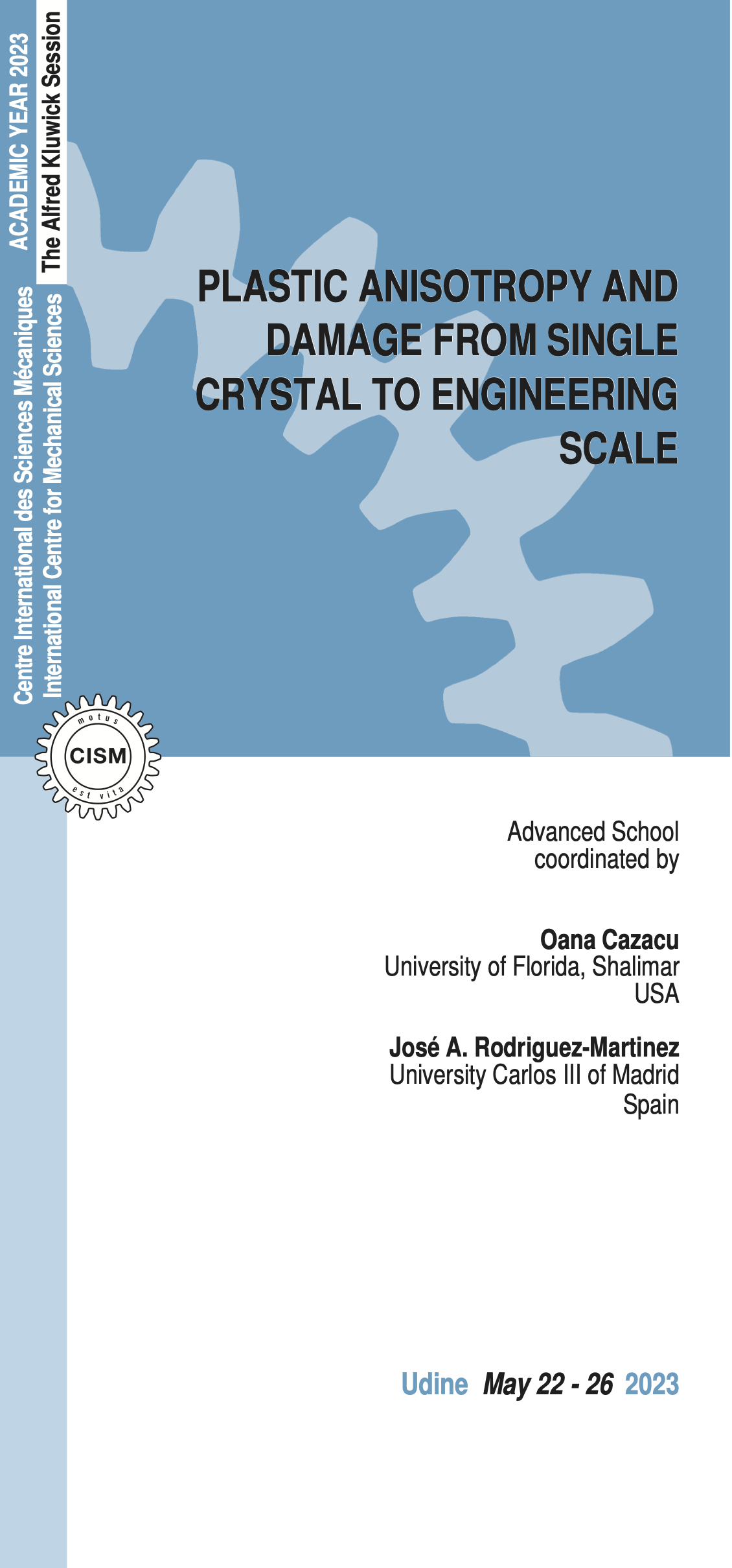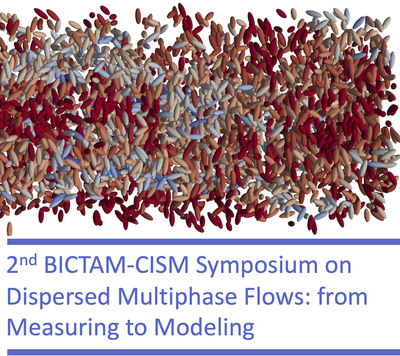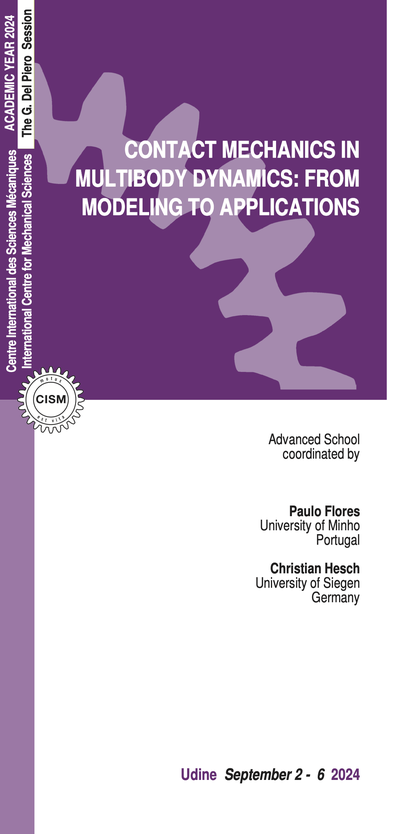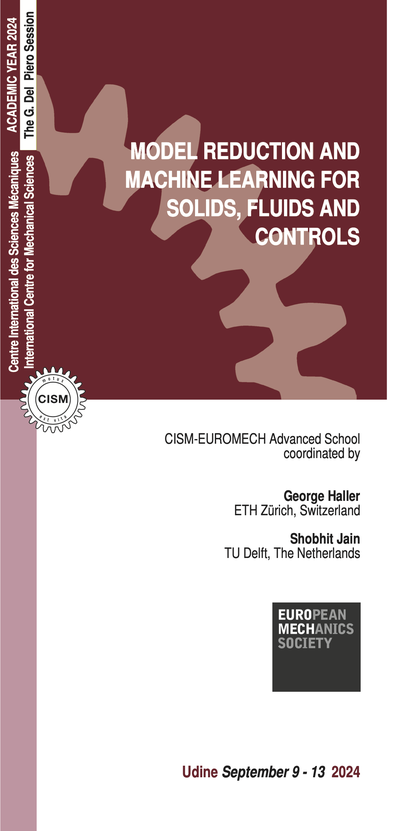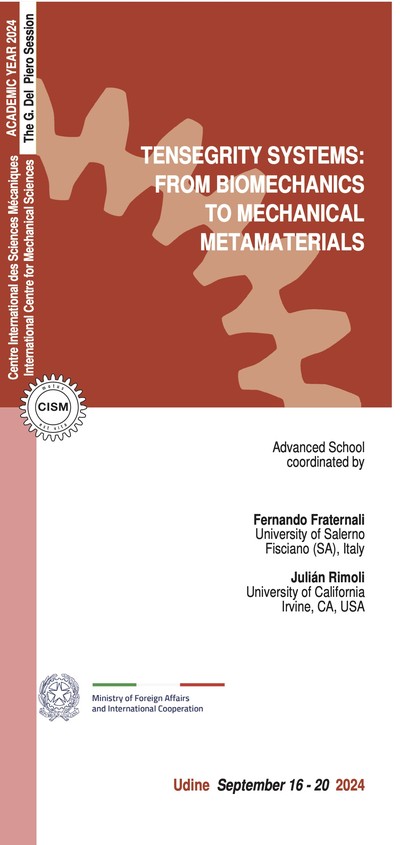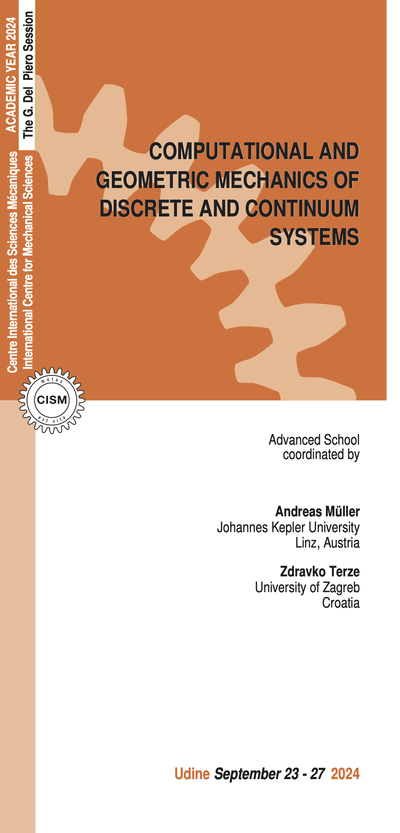Advances in the theory of plasticity of metallic materials have been driven by the demand to improve performance and safety of structures and machine parts.
The central goal of this series of lectures is to provide an overview of the current knowledge and recent developments in the field with applications spanning multiple length scales and strain-rate regimes. Emphasis is placed on providing a rigorous framework for description of dissipative phenomena, a clear understanding of the hypotheses and simplifying assumptions for each of the constitutive models and computational methods presented. Specifically, for each model, the range of applicability, and limitations are provided along with examples of their predictive capabilities through applications from various engineering fields. Furthermore, open questions related to modeling of plastic deformation mechanisms at the single crystal scale, role of the material’s symmetries, how plastic anisotropy affects damage are pointed out and possible future directions of research and applications are provided. Attention is also paid to the interplay between plasticity and the evolution of ductile damage, which triggers the formation instabilities that eventually lead to material fracture. Finally, the importance of material microstructure at various length scales is discussed along with the impact of microstructure and its evolution on overall material behavior.
Following this course, the attendees will have (1) the basic concepts necessary to design experiments that would reveal key features of the mechanical response of a material under given loading conditions, (2) understanding of the deformation mechanisms at lower length scales that induce the observed macroscopic response, (3) the ability to determine the most appropriate model to be used along with an appropriate parametrization, (4) concepts necessary to formulate constitutive models for fully-dense and porous metals which display anisotropy and tension-compression asymmetry, (5) the basics necessary for implementation of the models into FE codes, (6) analytical modeling of instabilities, (7) basic understanding of the differences between mean-field and full-field polycrystal formulations, enabling the selection of the appropriate model for prediction of the mechanical behavior and microstructure evolution of a polycrystal; (8) basics of the mechanics of interfaces, with focus on microstructure evolution, phase transformations, and the respective computational approaches.
The course will combine theoretical classes with hands on lectures in which the attendees will run codes and perform simulations putting into practice the concepts introduced, developing critical understanding of the mechanisms which control plastic deformation at different scales. In addition, slots for the participants to present their research will be allocated.
T. Belytschko, W. K. Liu, B. Moran, K. Elkhodary. 2014. Nonlinear Finite Elements for Continua and Structures, 2nd Edition, Wiley. ISBN: 978-1-118-63270-3.
O. Cazacu, B. Revil-Baudard. 2021. Plasticity of Metallic Materials: Modelling and Applications to Metal Forming. Elsevier. ISBN: 9780128179840.
O. Cazacu, B. Revil-Baudard, N. Chandola. 2019. Plasticity-damage couplings: from single crystal to polycrystalline materials. Springer. ISBN: 978-3-319-92921-7.
T. Mura. 1987. Micromechanics of Defects in Solids, 2nd edition. Martinus-Nijhoff Publishers, Dordrecht.
U. F Kocks, C. N. Tomé, H. R. Wenk. 1998. Texture and Anisotropy: Preferred Orientations in Polycrystals and Their Effect on Materials Properties. Cambridge University Press.
R. A. Lebensohn. 2018. Polycrystal plasticity models based on Green’s functions: mean-field self-consistent and full-field Fast Fourier Transform formulations. In: Handbook of Materials Modeling (HMM2). Volume I, Springer.
S. Lucarini, M. V. Upadhyay, J. Segurado. FFT based approaches in micromechanics: fundamentals, methods and applications. Model Simul Mat Sci Eng. 2022; 30: 023002.
S. Lucarini, J. Segurado. On the accuracy of spectral solvers for micromechanics based fatigue modeling. Comput Mech. 2019; 63: 365-382.
A. R. Vishnu, M. Marvi-Mashhadi, J. C. Nieto-Fuentes, J. A. Rodríguez-Martínez. New insights into the role of porous microstructure on dynamic shear localization. Int. J. Plast. 2022, 148: 103150.
K. Bhattacharya. 2003. Microstructure of Martensite: Why it forms and how it gives rise to the shape-memory effect. Oxford University Press, Oxford.
M. Rezaee-Hajidehi, P. Sadowski, S. Stupkiewicz. Deformation twinning as a displacive transformation: Finite-strain phase-field model of coupled twinning and crystal plasticity. J Mech Phys Solids, 2022, 163: 104885.
6 lectures on: Material symmetries; methods to include anisotropy in constitutive laws: linear transformation; generalized invariants; yield criteria for crystals; anisotropic elasto-plastic models for polycrystalline FCC, BCC, HCP materials; experiments for parameters identification; derivation of plastic potentials for porous metallic materials; validation for various 3-D loadings.
6 lectures on: Plasticity models and experiments for characterization, parameter identification and validation. Numerical modelling of large strain plasticity and viscoplasticity. Physical mechanisms of ductile fracture. Fracture models, damage mechanics and porous plasticity. Applications in nonlinear finite element analysis of structural components under quasi-static and dynamic loadings.
6 lectures on: Texture and anisotropy of polycrystals: single crystal and polycrystal elasticity and plasticity. Self-consistent models: Green’s function methods, Eshelby problem, elastic self-consistent formulation. Mean-field polycrystal plasticity models: viscoplastic self-consistent. Full-field polycrystal plasticity models: thermo-elasto-viscoplastic implementations.
6 lectures on: Fragmentation and spall fracture tests: experimental design, measurement techniques, interpretation of results. Analytical modelling of plastic instabilities formation at high strain rates: shear bands and necks. Microstructurally-informed finite-element (FE) modelling of dynamic damage and fracture in metallic materials: the influence of actual porosity and initial texture.
6 lectures on: Practical aspects of FFT homogenization: Fourier transform, concept of derivative, review of basic schemes, other approaches, adaptative meshing. Micromechanical simulation of damage and fracture: damage, phase-field fracture. Micromechanical simulation of cyclic plasticity and fatigue: practical work, programming FFT in python, cyclic plasticity in CP-FFT, phase-field fracture.
6 lectures on: Introduction to computational plasticity, crystallographic theory of martensite, martensitic microstructures, interfacial energy and size effects, phase-field method for microstructure evolution problems, deformation twinning, phase-field modelling of coupled twinning and slip, strain localization and propagating instabilities in polycrystalline shape memory alloys.
ADMISSION AND ACCOMMODATION
The course is offered in a hybrid format giving the possibility to attend the course also by remote (on Microsoft Teams platform). On-site places are limited and assigned on first come first served basis.
The registration fees are:
On-site participation, 600.00 Euro + VAT*
This fee includes a complimentary bag, five fixed menu buffet lunches, hot beverages, downloadable lecture notes.
Deadline for on-site application is April 22, 2023.
Online participation, 250.00 Euro + VAT*
This fee includes downloadable lecture notes.
Deadline for online application is May 10, 2023.
Application forms should be sent on-line through the following web site: http://www.cism.it
A message of confirmation will be sent to accepted participants.
Upon request a limited number of on-site participants can be accommodated at CISM Guest House at the price of 35 Euro per person/night (mail to: foresteria@cism.it).
* where applicable (bank charges are not included) Italian VAT is 22%.
CANCELLATION POLICY
Applicants may cancel their registration and receive a full refund by notifying CISM Secretariat in writing (by email) no later than:
- April 22, 2023 for on-site participants (no refund after the deadline);
- May 10, 2023 for online participants (no refund after the deadline).
Cancellation requests received before these deadlines will be charged a 50.00 Euro handling fee. Incorrect payments are subject to Euro 50,00 handling fee.
GRANTS
A limited number of participants from universities and research centres who are not supported by their own institutions can request the waiver of the registration fee and/or free lodging.
Requests should be sent to CISM Secretariat by March 22, 2023 along with the applicant's curriculum and a letter of recommendation by the head of the department or a supervisor confirming that the institute cannot provide funding. Preference will be given to applicants from countries that sponsor CISM.
